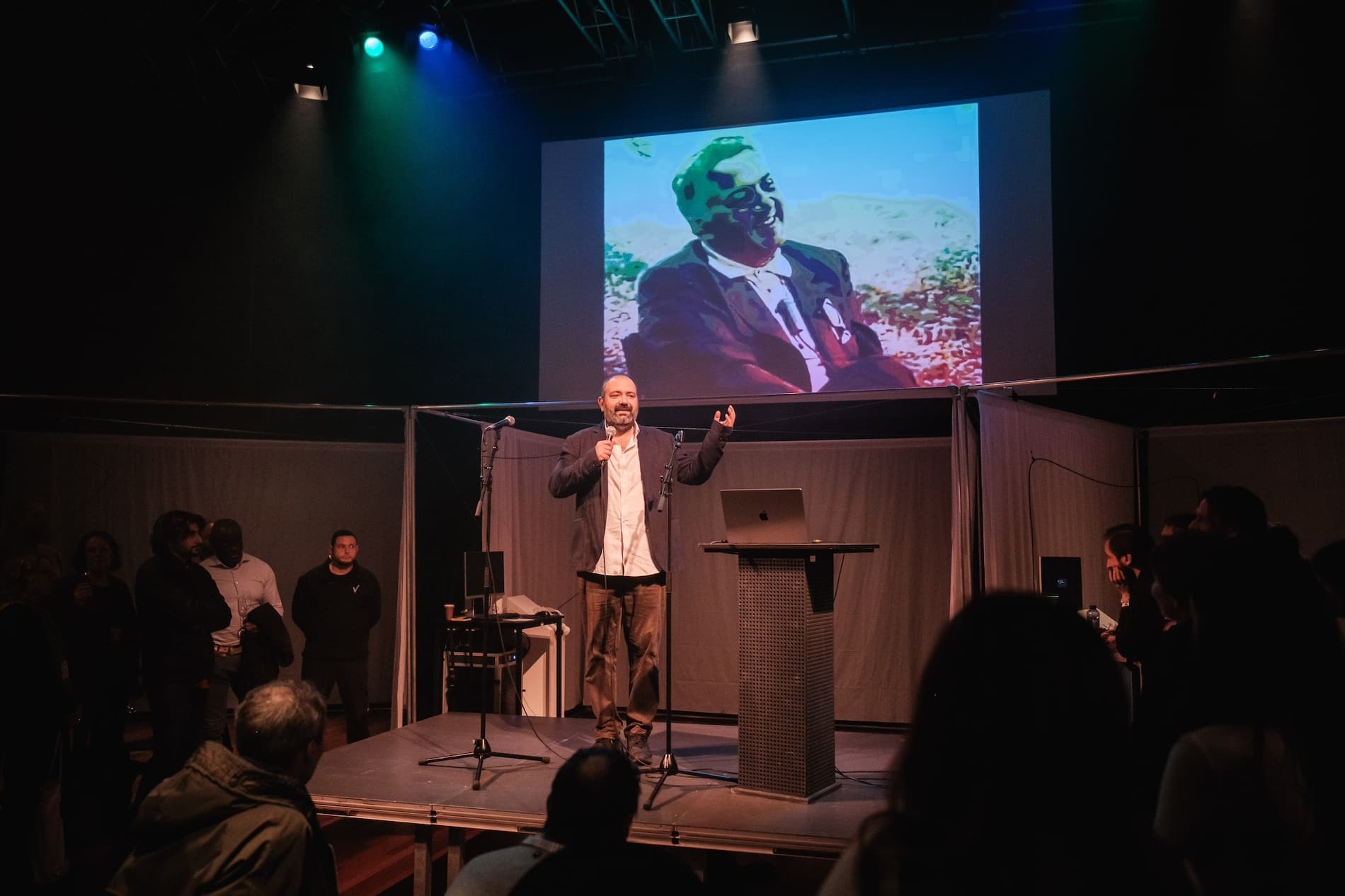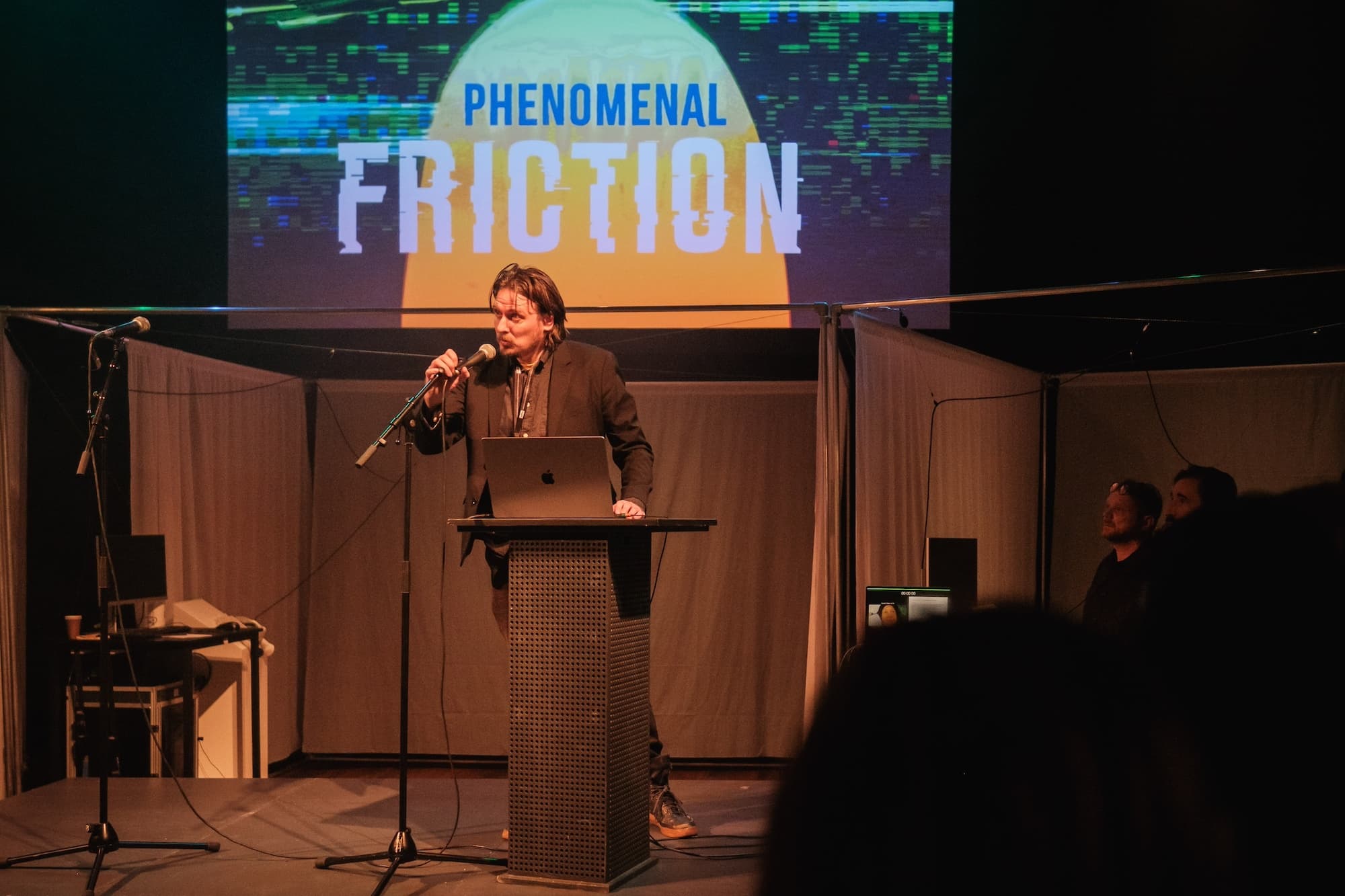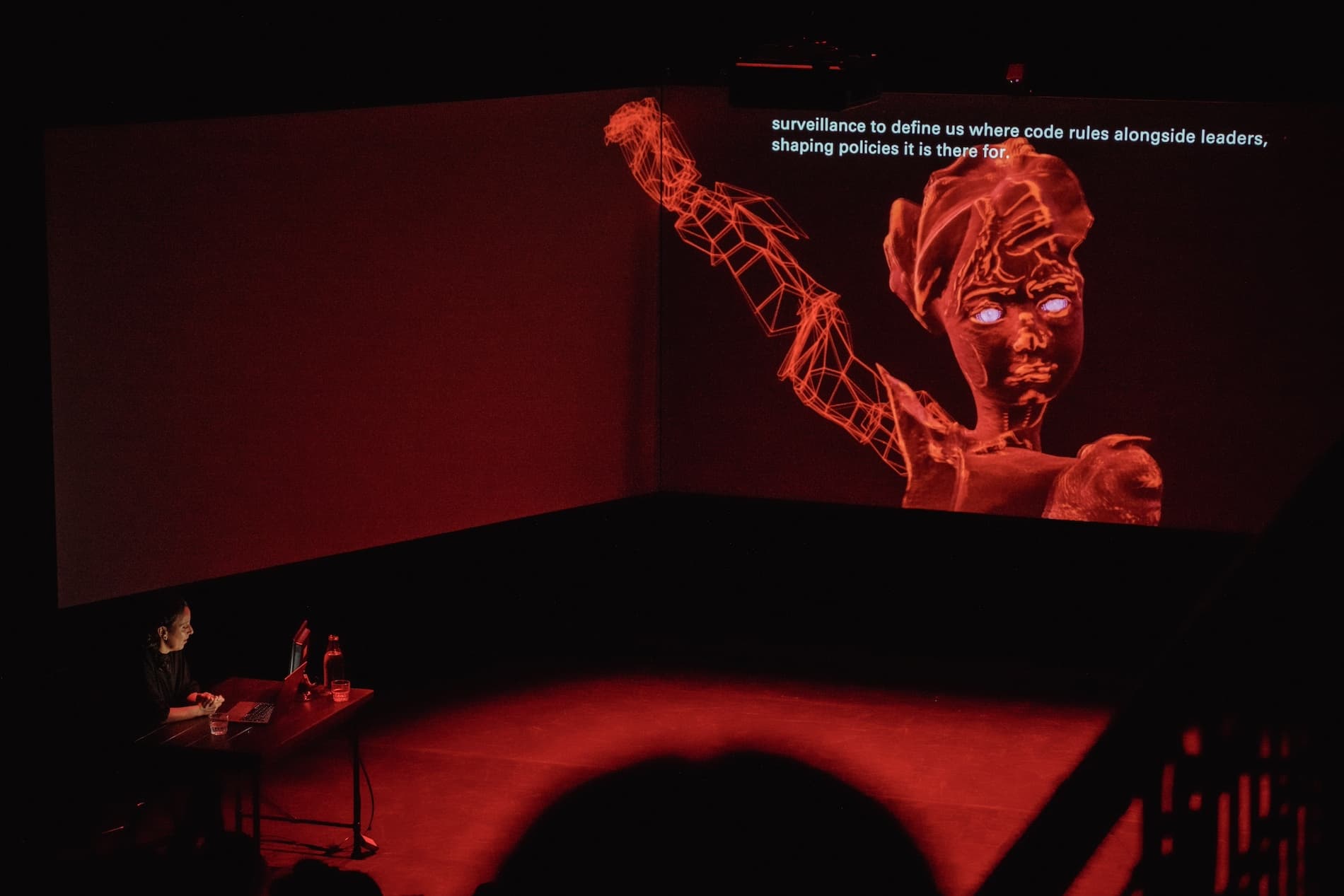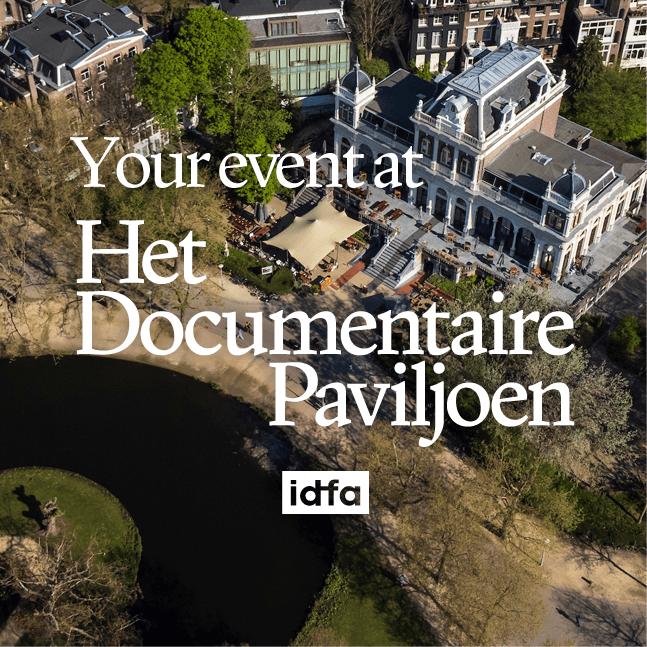
IDFA DocLab opens: Designing Phenomenal Friction
The opening of this year's IDFA DocLab took place at De Brakke Grond and featured some truly inspiring ways of looking at this year's theme: Phenomenal Friction.
This year's edition of IDFA DocLab officially started on Friday night at De Brakke Grond, with an inspiring opening ceremony and exhibition of part of the 30 works that constitute this year's program.
As per tradition, IDFA's artistic director Orwa Nyrabia first spoke to the audience, thanking the team and expressing his excitement for the new edition of DocLab and the artists whose works are being shown.
"These artists worked a lot and thought a lot and are truly some of the most talented people who are questioning technology, as well as reality. And that's what we believe in, challenging technology, next to challenging reality.
"It's a very difficult time, it is tough all around us," Nyrabia continued. "And then we are talking about friction. It's quite serendipitous. I think friction is a key for our existence. I have been thinking a lot about friction since Caspar Sonnen and the team of DocLab suggested this theme for this year. And I always thought that the end of friction is a form of silence, of emptiness. And then looking at the world, I think the end of fiction is probably war. Because that's when friction stops, that's when people start killing the friction. I think that's the definition of war to me now.
"It's sad, but again, we are of the world. We are not outside of the world. This artwork of all these artists is part of the world, it is not external to it. All that is happening in the world seeps into ourselves into our lives into our days," Nyrabia concluded, before playing a clip of a Federico Fellini interview, where the great director says that it is exactly in friction that things become clearer to him and the danger of them escaping him is what makes them more desirable.

Orwa Nyrabia showing the Federico Fellini interview clip
Next up, IDFA's Head of New Media Caspar Sonnen took the stage and directed the conversation towards human interaction.
"All of this boils down to the question, is it possible to have a real human connection without friction? And the answer is no. Without at least some form of friction there can be no touch, no movement, and no real connection. Technology, often seen as the art of removing friction, brings us a perpetual quest for convenience and efficiency. But what are the costs of a reality ruled by frictionless algorithms, easy clicks, transactions, and echo chambers, who ultimately benefits, and what did we lose along the way?
"Answers to questions like this are difficult, complex to define, and even very hard to discuss, and that is why we are so grateful to over 30 artists this year from all over the world that have been providing parts of answers and asking new questions within this program," Sonnen said before highlighting some of the works that will be performed at Artis and Eye Filmmuseum, on offer alongside those accessible at De Brakke Grond exhibition.
After thanking the DocLab team and program advisors who helped select the experiences and installations that are taking part at this year's IDFA, Sonnen introduced a short lecture by Luna Maurer, who together with Roel Wouters and Alexandra Barancová created Designing Friction - A call for friction in digital culture.

Caspar Sonnen
Maurer came on the stage equipped with a "smiley cam"—a head rig with a smartphone filming her face painted as a yellow smiley (pictured on top). Getting straight to the point, she said: "Smileys don't have wrinkles.
"We have been struggling quite a lot the last couple of years, due to the changes in the digital landscape. We've become much more critical about everything that's happening. And now it’s time for a real paradigm shift and we call this Designing Friction: Alternative Techno Optimists Manifesto," Maurer introduced their concept.
It is about the necessity of friction in life—as opposed to smooth, convenient ways we are now communicating and dealing with the world. It is about engagement, but not the online one, rather about "being entangled in the world and really feel connected."
"Friction in this context doesn't mean anger or conflict or malfunctioning technology, it means a truly lifelike, intrinsic experience that underlies our humanness and sparks human connection," she elaborated and went on to address the ways technology removes friction and tries to create seamless experiences.
She then quoted philosopher Haroon Sheikh who said that technology turns our interaction with things into interaction with devices.
"If you have a ball, you throw it, if you have a chair, you sit on it. But digital devices are characterized by the fact that regardless of the function, you treat them the same way," she explained. "So, this removes physical resistance where form is detached from its function."
As convenience takes over in all areas of life—communication, shopping, dating—there is hardly any need to move in the physical world.
"But there's one more reason why technology tries to remove friction—to move towards predictability," Maurer said. "All our actions are recorded and translated into data, which gets recorded by algorithms, and they return to us a predictable environment. So, if we are predictable, if our environment is predictable, a few people can control it better.
"This is why my autonomy is at stake, so friction in this sense counters the goal of predictability. We're done with seamlessness. We really think designing friction should be a core guideline core design principle, a paradigm.
"If you are maker in the world of digital culture, embrace friction, facilitate it, design products, digital products and environments, where friction is its core ingredient."
Then Maurer outlined five proposals for creating more ways to create friction and keep our world unpredictable at least to a point: discomfort, making things slower, being in the now, engaging your whole body, and disagreement. All these points are elaborated here.

(this conversation is) Off the Record by Nirit Peled
The event was preceded by the world premiere of "one of the most moving pieces that DocLab has seen in recent years," according to Sonnen: (this conversation is) Off the Record by the Dutch artist Nirit Peled. This interactive lecture that also features actress Janneke Remmers and human rights lawyer Jelle Klaas investigates crime-prevention algorithms secretly applied by the Dutch police onto children aged 12–18. This truly captivating performance will again take place on November 12 at 21:00 at De Brakke Grond.
This year's IDFA DocLab features a large and wildly varied program split into IDFA DocLab Competition for Digital Storytelling, IDFA DocLab Competition for Immersive Non-Fiction, and IDFA DocLab Spotlight, plus the industry sections IDFA DocLab R&D Program and DocLab R&D Summit.
